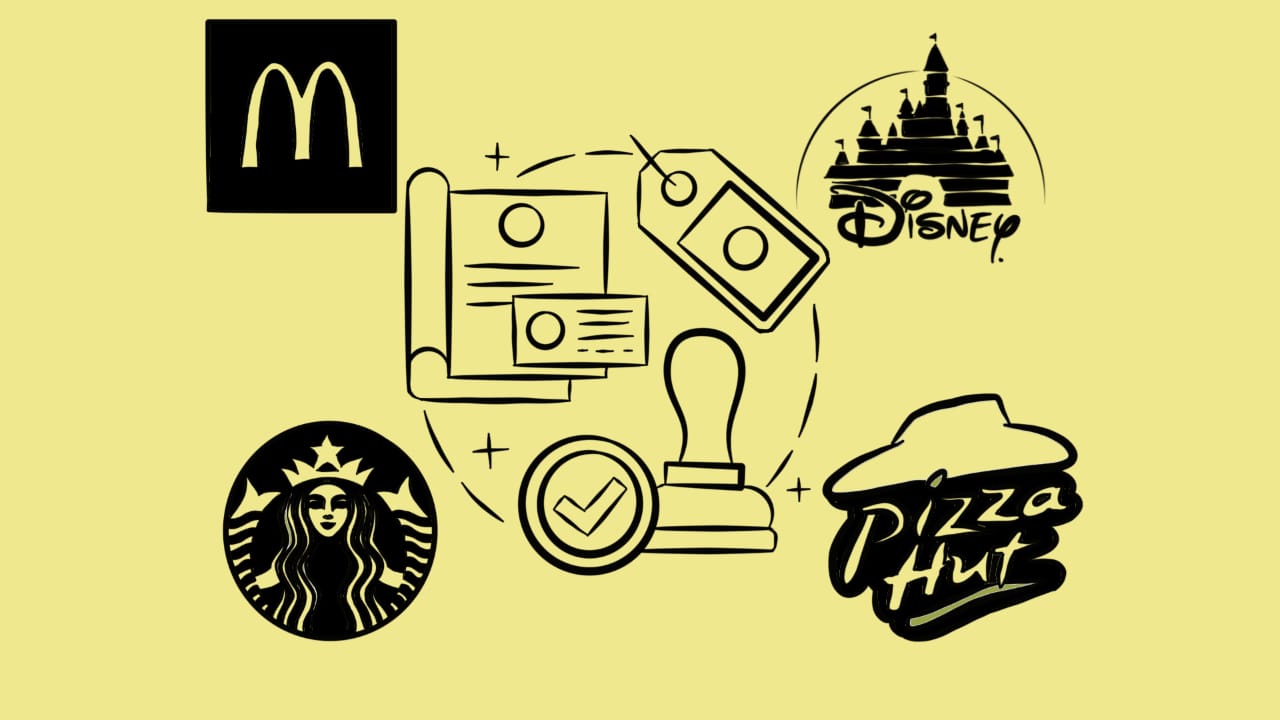
Once a business starts earning sufficient profits, the next thing that comes to businesspeoples’ minds is expansion. The expansion can be in terms of increasing the product line, increasing the number of employees or increasing the number of business outlets. Expansion strategies vary from business to business.
However, most companies have adopted a narrow pool of tried and tested methods. Both licensing and franchising belong to that pool. Both of them are widely used as strategies by many MNCs like Microsoft and Domino’s Pizza. While licensing is generally associated with product-based companies (like denim and software), franchising deals with services (like food chains and repair outlets).
LICENSING
It is a type of contract or legal relationship, where one party (known as the licensor) grants another party (known as the licensee) the right to use or benefit from their trademark, technology or any other legal right. In return, the licensee has to pay royalties. Some common examples of licensing that we every day are:
- Windows Operating System, on which the majority of the computers run, is an example of licensing where Microsoft grants individuals the license to use their patent software.
- Companies such as Arrow, Tommy Hilfiger and U.S. Polo ventured into the Indian market by entering into a licensing agreement with Arvind, the flagship enterprise of the Lalbhai Group.
- McDonald’s was granted a license by Disney for their Happy Meal scheme so that they can use Disney’s trademark characters as a part of it.
Generally, a person enters into such agreements when they have a well-established business and is looking to expand its product line. The licensee has to agree to certain terms and conditions which allow the licensor to dictate what the licensee can and cannot do with the licensed property. But at the same time, the company fails to provide any additional assistance services such as training or marketing for the same. As a licensor, such agreements also become a marketing tool.
It also provides an opportunity to try out new locations with little risk along with maintaining complete control over their product. Generally, licensing agreements are non-exclusive: the licensor can grant the rights of their property to more than one person. As a result, a licensee has to face heavy competition. In India, licensing agreements are governed by laws such as the Indian Contract Act 1872, the Patent Act 1970, the Designs Act 2000 and the Trademarks Act 1999.
FRANCHISING
Franchising is a legal relationship where one party (known as the franchisor) grants another party (known as the franchisee) the right to develop, establish and duplicate the operations of the franchisor’s business. The franchisee needs to pay initial capital along with an annual fee to the franchisor, who, in exchange, provides training and other assistance to the franchisee. MNCs such as KFC, Dunkin’ Donuts and Baskin Robbins expanded throughout the globe with the help of franchising.
Any franchisee has three main elements:
- Trademark License - Under this agreement, the franchisor basically confers the franchisee the right to use their business name or trademark so that they can duplicate their work in a new service territory.
- Degree of Control - A franchise agreement requires parties to enter into an agreement wherein the franchisor has complete control over the business operations of the franchisee.
- Initial Fees - The franchisee needs to pay an upfront fee at the time of agreeing.
Businesses usually start to franchise their brand, once they believe that their business model has been perfected, has gained regional or national recognition and has proved to be a profit-making venture. They use franchising agreements as an expansion model because it carries less investment as compared to owning or opening a new store themselves. As a franchisee, though that person owns that franchise, they are subject to strict compliance with that company’s standards.
In return, they get access to an established customer base and a business model that has proven its profitability and whose brand recognition is well known. In India, there is no specific franchise-specific law governing the business units, however, provisions of the Indian Contract Act 1872, the Competition Act 2002 and Specific Relief Act 1963 are used to govern.
LICENSING VS FRANCHISING
Both modes share some similarities with the other, however, there are a few differences that are very important to understand in order to decide which model is most suitable for one’s business:
- Time Factor- License agreements can be drafted very quickly and involves considerably less cost while franchise agreements are time-consuming and involve a lot of work.
- Autonomy in Operations- In a licensing arrangement, the licensor has control over their licensed product and the licensee maintains complete autonomy in other business operations, while a franchise agreement grants the franchisor complete control over the franchisee business.
- Other Support- While a licensor only provides the right to use their patent product or brand and ignores any other support, a franchise agreement not only includes the right to use their business models but also technical support (training, marketing) by the franchisor as well.
A license, as compared to a franchise, involves limited legal relationships. Though these two seem to be similar, licensing can be viewed as a subset of franchising. Depending upon the aim of expansion, both the business models have been proved very successful in the global market. Furthermore, depending upon the degree of autonomy a small business would want, they can easily opt for either of the two models.
